
Amara: The Hidden Gem of Iraq
Amara, the capital of Maysan Governorate, is a city that offers a unique blend of history, culture, and natural beauty. Nestled along the banks of the Tigris River, Amara is a city that invites you to explore its rich heritage and vibrant local life. One of the most striking features of Amara is its beautiful marshlands. These wetlands are home to a diverse range of wildlife and offer visitors a chance to experience traditional marsh Arab culture. Taking a boat tour through the marshes is an unforgettable experience, allowing you to see the unique reed houses and meet the friendly locals who call this area home. Amara also boasts a number of historical sites that provide a window into Iraq's ancient past. The Al-Madina Mosque, with its stunning architecture and serene atmosphere, is a must-visit. Additionally, the city is home to several museums that showcase artifacts from the region's long and storied history. For those looking to experience the local culture, Amara's markets and bazaars are a treasure trove of traditional crafts and delicious Iraqi cuisine. The city's hospitality is legendary, and you'll find the locals eager to share their stories and traditions with you. Whether you're exploring the natural beauty of the marshlands, delving into the rich history at the city's museums, or simply enjoying the local cuisine and culture, Amara offers a unique and enriching travel experience.
Local tips in Amara
- Visit the marshlands early in the morning for the best wildlife sightings and to experience the area at its most tranquil.
- Dress modestly, especially when visiting religious sites, to show respect for local customs and traditions.
- Learn a few basic Arabic phrases; locals appreciate the effort and it can enhance your interactions.
- Try the local cuisine at Amara's markets and street food stalls for an authentic taste of Iraqi flavors.
- Hire a local guide to help you navigate the city and provide insights into its rich history and culture.
Amara: The Hidden Gem of Iraq
Amara, the capital of Maysan Governorate, is a city that offers a unique blend of history, culture, and natural beauty. Nestled along the banks of the Tigris River, Amara is a city that invites you to explore its rich heritage and vibrant local life. One of the most striking features of Amara is its beautiful marshlands. These wetlands are home to a diverse range of wildlife and offer visitors a chance to experience traditional marsh Arab culture. Taking a boat tour through the marshes is an unforgettable experience, allowing you to see the unique reed houses and meet the friendly locals who call this area home. Amara also boasts a number of historical sites that provide a window into Iraq's ancient past. The Al-Madina Mosque, with its stunning architecture and serene atmosphere, is a must-visit. Additionally, the city is home to several museums that showcase artifacts from the region's long and storied history. For those looking to experience the local culture, Amara's markets and bazaars are a treasure trove of traditional crafts and delicious Iraqi cuisine. The city's hospitality is legendary, and you'll find the locals eager to share their stories and traditions with you. Whether you're exploring the natural beauty of the marshlands, delving into the rich history at the city's museums, or simply enjoying the local cuisine and culture, Amara offers a unique and enriching travel experience.
When is the best time to go to Amara?
Iconic landmarks you can’t miss
Martyr Monument
A poignant Baghdad landmark honoring Iraqi martyrs, featuring a split turquoise dome and serene memorial grounds.
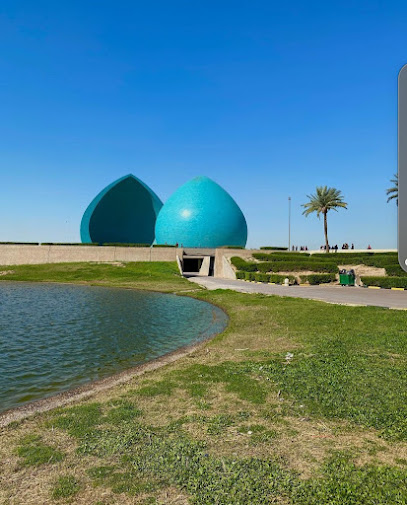
Great Ziggurat of Ur
Explore the ancient marvel of the Great Ziggurat of Ur, a testament to Sumerian civilization and Mesopotamian religious architecture in Nasiriyah, Iraq.
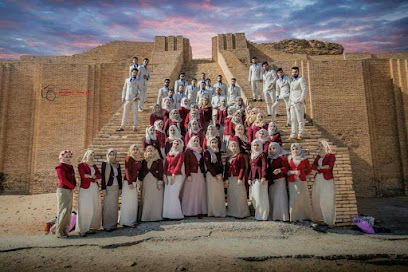
Abbasid Palace
Explore the Abbasid Palace in Baghdad, a historical treasure showcasing Islamic architecture and the grandeur of the Abbasid Caliphate.
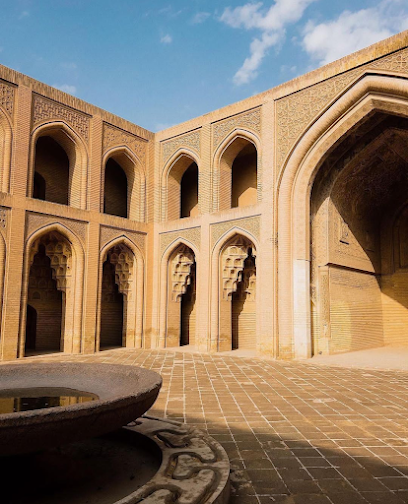
Amara War Cemetery, World War I British Army
Reflect on WWI history at Amara War Cemetery, a peaceful memorial to British Empire soldiers in Amarah, Iraq.

Unmissable attractions to see
Missan Fun-fair City
Experience thrilling rides, games, and delicious treats at Amarah's vibrant Missan Fun-fair City, a perfect family destination.
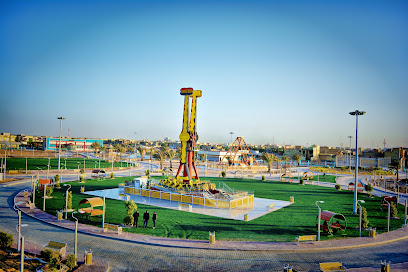
حديقة السندباد
Explore the beauty of Al-Sindbad Park in Amarah, a peaceful green oasis perfect for relaxation and family outings.
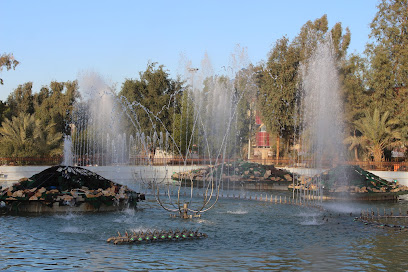
Kornish of seeriaa
Enjoy a relaxing escape at Kornish of seeriaa, Amarah's scenic riverside park, perfect for leisurely strolls and family outings.
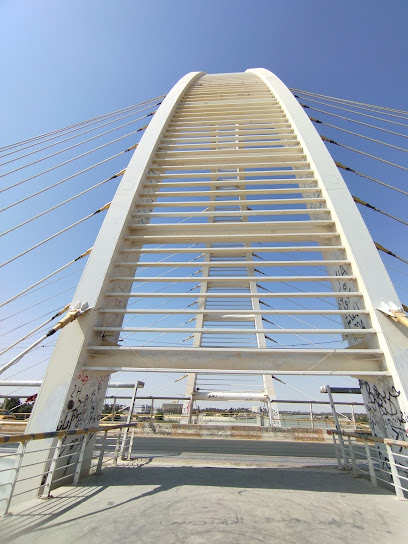
متنزه
Discover a green oasis in Amarah. متنزه State Park: Nature, relaxation, and family fun in the heart of Maysan Governorate.
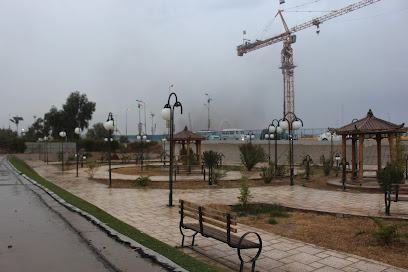
Corniche of the Sabian Mandaean Temple
A peaceful riverside promenade in Amarah, offering a glimpse into the unique culture and traditions of the Sabian Mandaean community.
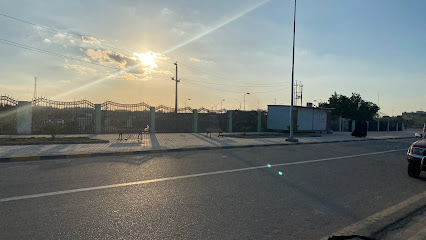
Tswahin Park
Escape to Tswahin Park in Amarah: A tranquil green space offering relaxation, recreation, and a touch of local culture in the heart of Maysan Governorate.
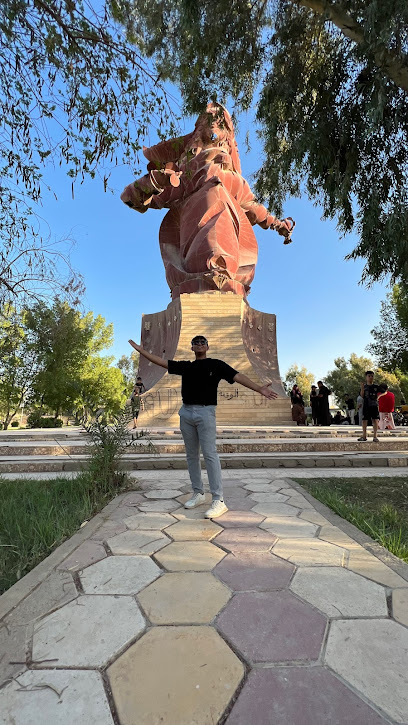
سوق الطيور
Discover a vibrant avian marketplace in Amarah, where bird enthusiasts gather to admire and trade a colorful array of feathered friends.

الرصيف المعرفي
Discover Al-Rasif Al-Ma'rifi Park in Amarah: A serene escape where nature meets culture on the banks of the Tigris.
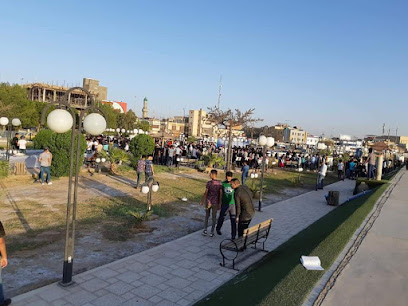
متنزه الزوارق الاربعة
Experience the serene beauty of Al-Zawraq Park in Amarah, a peaceful haven for nature lovers and relaxation seekers in Maysan Governorate.

متنزه حي المعلمين علم العراق
Explore the serene landscapes and rich cultural heritage of Al-Maalem Park in Maysan, Iraq - a peaceful retreat for all nature lovers.

كورنيش السرية و السراي
Discover the serene beauty of كورنيش السرية و السراي in Amarah, a perfect riverside escape for relaxation and enjoying scenic views.
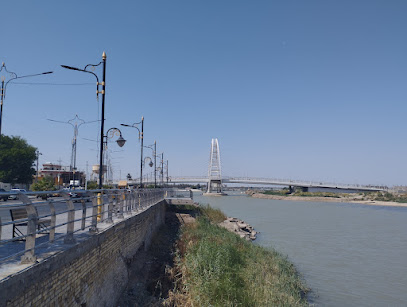
دور النفط السدة بيت حجي جاسم
Discover the scenic hiking trails and tranquil beauty of دور النفط السدة بيت حجي جاسم in Maysan Governorate, Iraq.
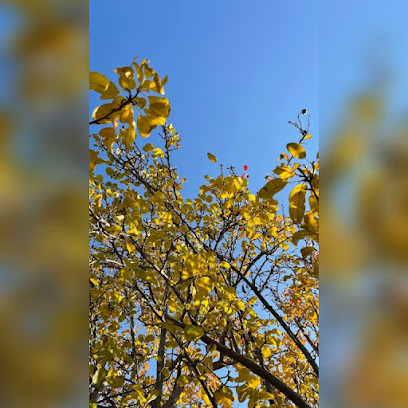
متنزة جسر السدة
Escape to nature at Al-Sada Bridge Park in Amarah, a serene oasis perfect for relaxation and family fun in Maysan Governorate.
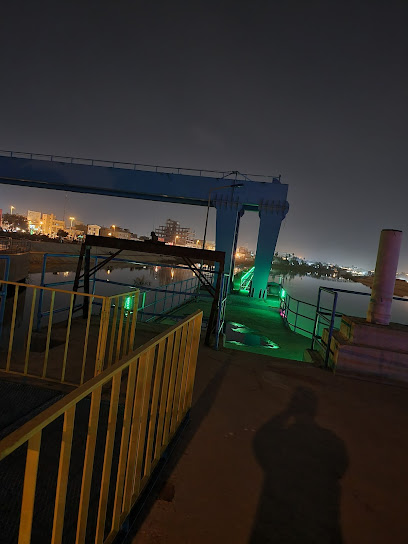
متنزه دور النفط
Discover the serene Oil Cultural Park in Amarah, a perfect blend of nature and cultural heritage for an unforgettable experience.

الصريفه
Discover Al-Sarifa Garden in Amarah: a serene escape with lush greenery, vibrant flowers, and a peaceful atmosphere for relaxation and reflection.

Essential places to dine
Alzaafran Restaurant
Discover exquisite local flavors at Alzaafran Restaurant in Amarah – a culinary gem offering authentic Iraqi dishes and warm hospitality.
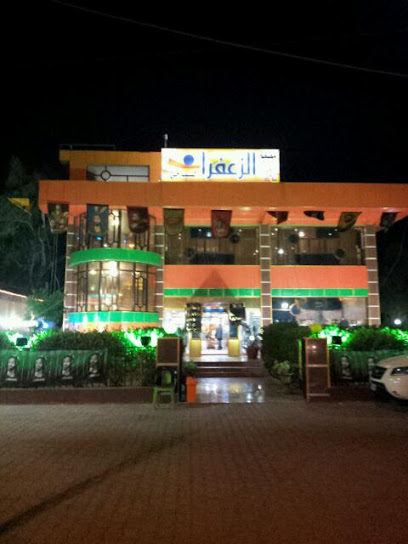
FM restaurant
Discover FM Restaurant in Amarah for authentic Iraqi cuisine served with warmth and hospitality at moderate prices.
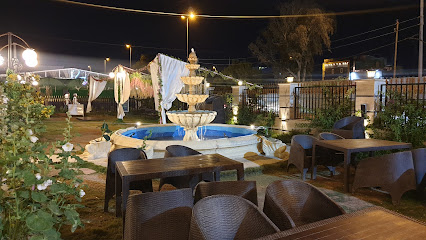
Jalal Restaurant
Experience authentic Iraqi cuisine at Jalal Restaurant in Amarah - where every dish tells a story.
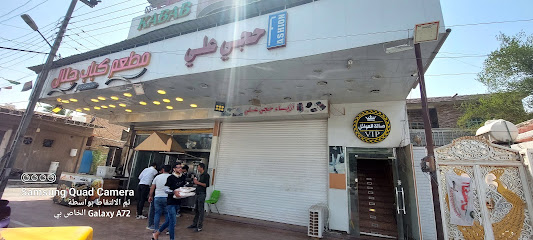
Kebab El Hadji Restaurant
Discover the rich flavors of Iraqi cuisine at Kebab El Hadji Restaurant in Amarah - your gateway to delicious kebabs and local specialties.
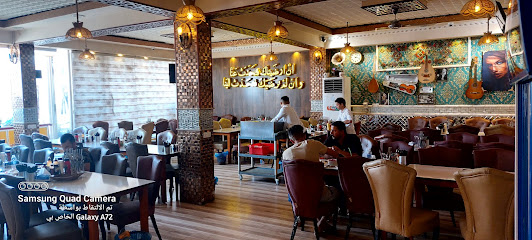
Al-Mathaq fast food restaurant
Experience delicious local fast food at Al-Mathaq in Amarah—affordable dining with a taste of Iraqi culture!
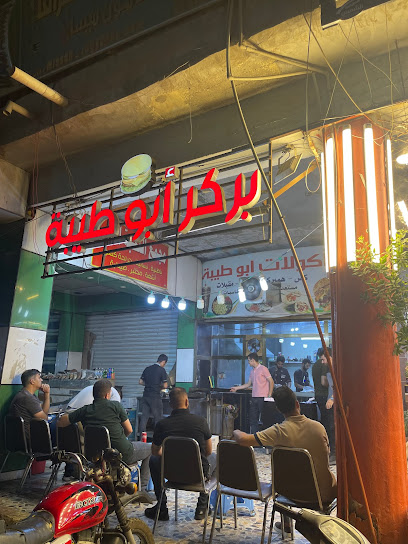
Hot Dish Fast Food - الطبق الساخن للأكلات السريعة
Experience authentic fast food at Hot Dish Fast Food in Amarah - where local flavors meet satisfying meals in a cozy setting.
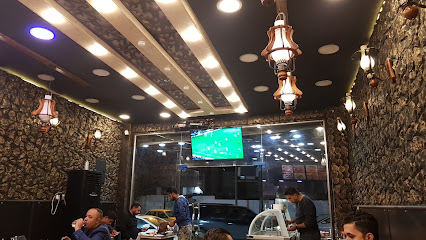
مطعم كباب جلال
Discover authentic Iraqi cuisine at مطعم كباب جلال in Amarah, where delicious kebabs and warm hospitality await every visitor.
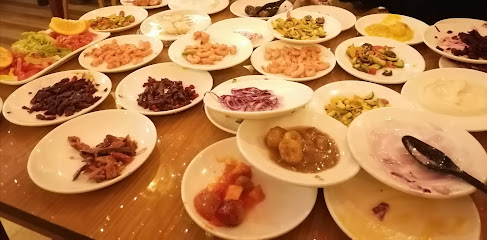
Fury Burger
Discover Fury Burger in Amarah - where delicious flavors meet vibrant dining experiences in the heart of Maysan Governorate.
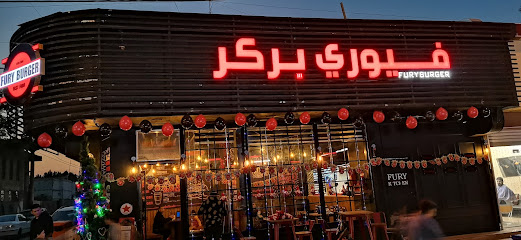
مطعم ابو القاسم
Experience authentic Iraqi flavors at مطعم ابو القاسم in Maysan – a delightful restaurant perfect for every foodie!
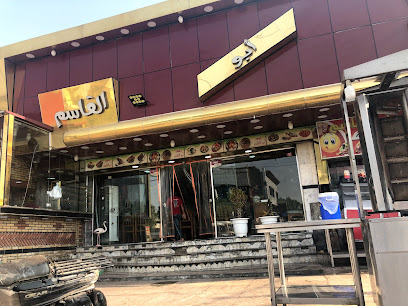
Syed Bilal Restaurant
Discover the rich flavors of Iraqi cuisine at Syed Bilal Restaurant in Amarah – a culinary journey not to be missed!
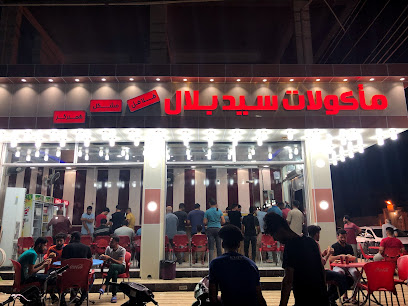
Kaream falafel restaurant
Savor authentic Middle Eastern flavors at Kaream Falafel Restaurant in Amarah – where every bite tells a story.
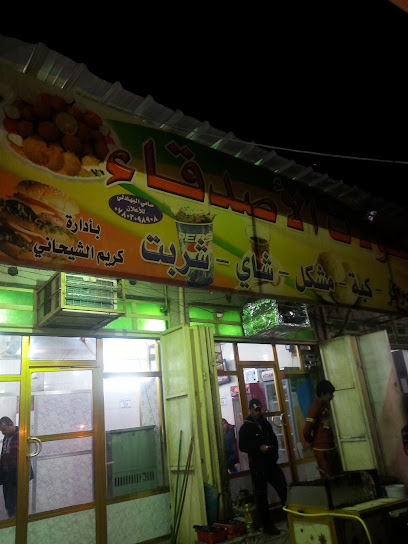
Abu Ahmed, a kebab restaurant
Discover authentic Middle Eastern cuisine at Abu Ahmed, Amarah's premier kebab restaurant known for its warm hospitality and delicious grilled specialties.

باچة المكصوصي
Savor the authentic flavors of Iraq at باچة المكصوصي – a traditional restaurant offering exquisite local dishes in Amarah.
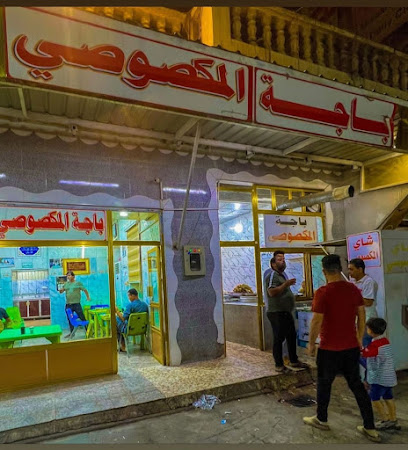
Habuz Buz Restaurant
Experience authentic Iraqi cuisine at Habuz Buz Restaurant in Amarah, where traditional flavors meet warm hospitality for an unforgettable dining experience.

Sit Al-Sham Fast Food
Experience delicious fast food at Sit Al-Sham in Amarah – where local flavors meet casual dining!
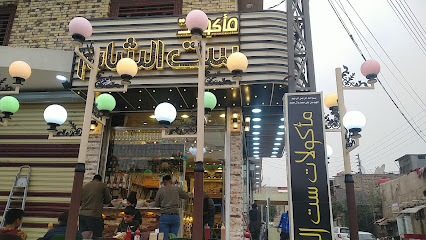
Markets, malls and hidden boutiques
MAXIMALL
Experience the vibrant shopping scene at MAXIMALL in Amarah, featuring a wide range of stores, dining options, and entertainment for all ages.
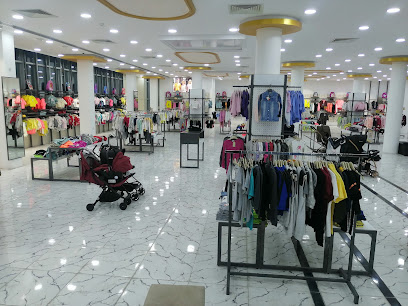
محل ابو نور
Discover local flavors and everyday essentials at محل ابو نور, a vibrant supermarket in Amarah, where community meets convenience.

Zahra Mall
Explore Zahra Mall in Amarah for a unique shopping experience filled with diverse clothing styles and local fashion treasures.
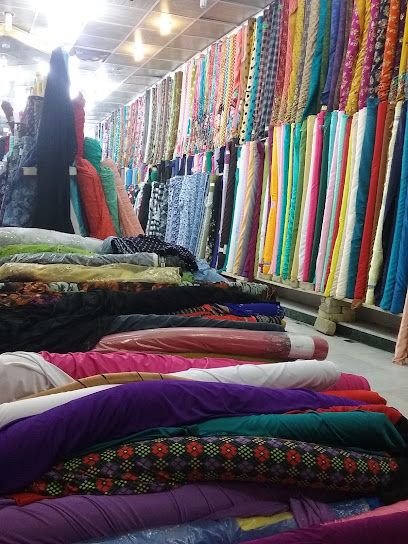
اسواق حسون
Discover the local flavors and everyday essentials at اسواق حسون, a vibrant convenience store in Amarah, Iraq.
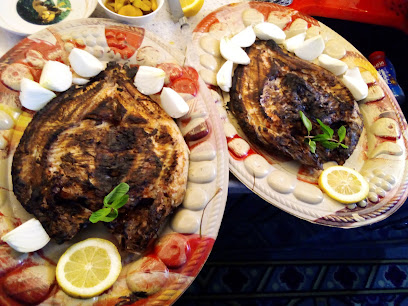
ازياء سيف بنزو
Explore the vibrant fashion at أزياء سيف بنزو in Amarah, where traditional meets modern in a unique shopping experience.
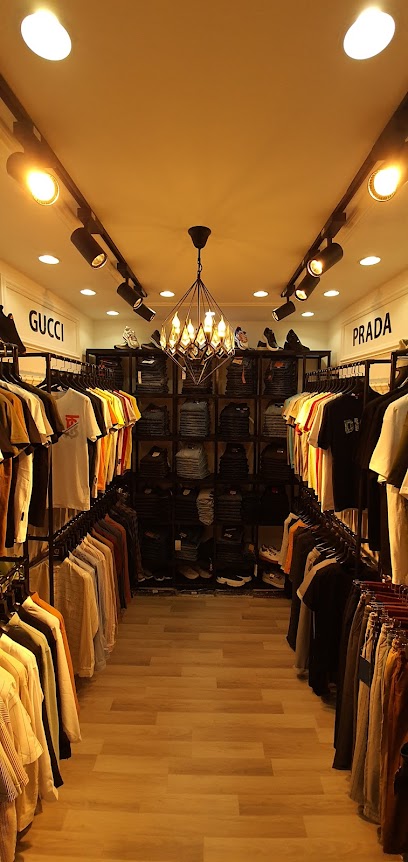
King's Office software and the Internet
Explore a tech haven in Miqdadiyah at King's Office, your go-to spot for software and internet solutions in a vibrant local environment.

مول جوهرة ميسان التركي
Experience a blend of traditional and modern fashion at مول جوهرة ميسان التركي, Amarah's premier clothing destination.
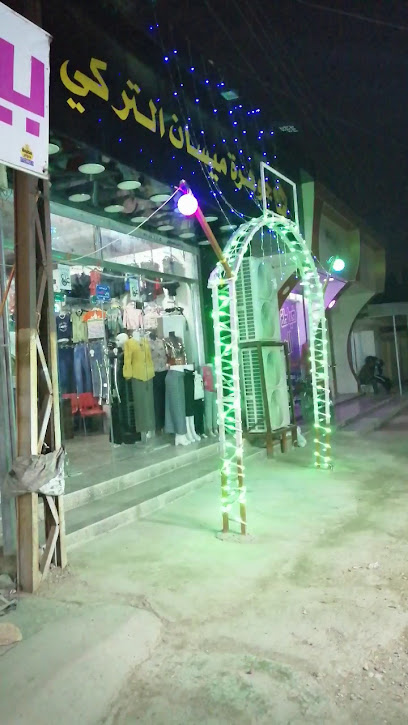
محل ابو رافد
Explore the vibrant atmosphere and local flavors at محل ابو رافد, the premier supermarket in Amarah, Maysan Governorate.

أزياء وكماليات گاردينا
Explore the vibrant fashion scene at Gardena in Amarah, where contemporary style meets local culture in a unique shopping experience.
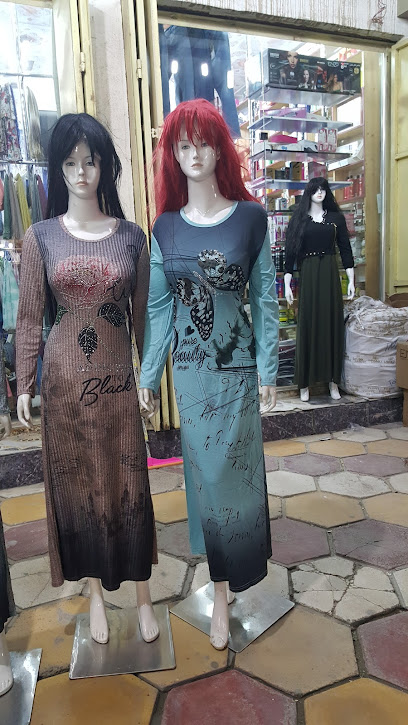
كوزمتك توكي2
Explore the best of beauty products at كوزمتك توكي2 in Amarah, where quality meets elegance in cosmetics.
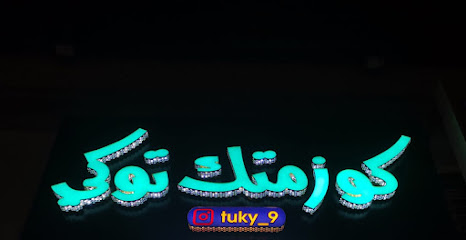
معرض باريس
Discover the ultimate shoe shopping experience at معرض باريس in Amarah, where style meets quality in every step.

Abu Ridha to car accessories
Explore Abu Ridha in Amarah for unique gifts and local crafts that embody the spirit of Maysan's rich heritage.

Luxury Man
Discover Luxury Man in Amarah, a premier clothing destination offering exceptional fashion and personalized service for discerning shoppers.

أزياء كيوت
Discover vibrant costumes at أزياء كيوت, a charming store in Amarah, perfect for adding local flair to your wardrobe.

الصادق للهدايا والالعاب
Shop unique gifts and toys at الصادق للهدايا والالعاب in Amarah, offering a delightful shopping experience with local flair.

Essential bars & hidden hideouts
Kurmick Maysan Hotel
Experience luxury and comfort at Kurmick Maysan Hotel in Amarah, where modern amenities meet the rich culture of Maysan Governorate.
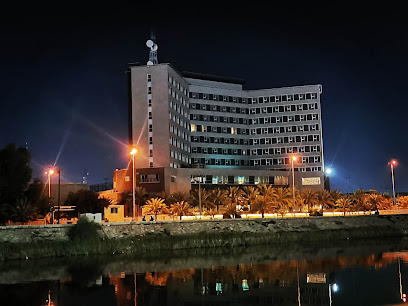
Siduri Pub - رێستورانتی سیدووری
Discover the vibrant nightlife at Siduri Pub in Erbil, offering a unique blend of local culture and modern entertainment.
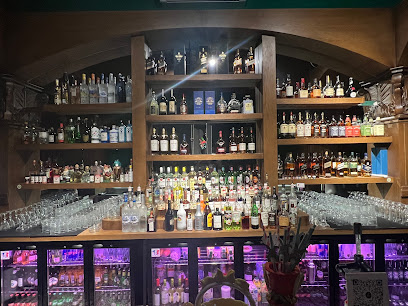
مقهى السفن دي
Discover مقهى السفن دي in Amarah – a perfect hookah bar to unwind and experience authentic local culture.
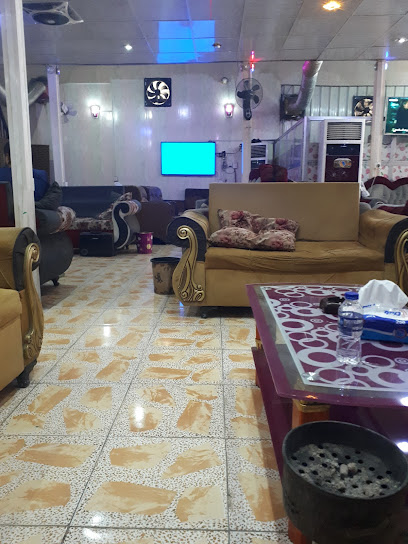
الياقوت كافية
Discover the vibrant atmosphere of Al-Yaqout Cafe in Amarah, where you can indulge in a rich variety of hookah flavors and connect with local culture.
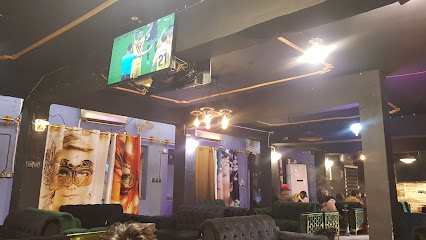
ring
Experience the lively bar culture of Al Kahla, where refreshing drinks meet a vibrant atmosphere, perfect for relaxation and socializing.

مضيف ابو لحوت العامر
Discover the heart of Iraqi hospitality at مضيف ابو لحوت العامر, a delightful bar in Amarah offering a blend of local culture and traditional drinks.
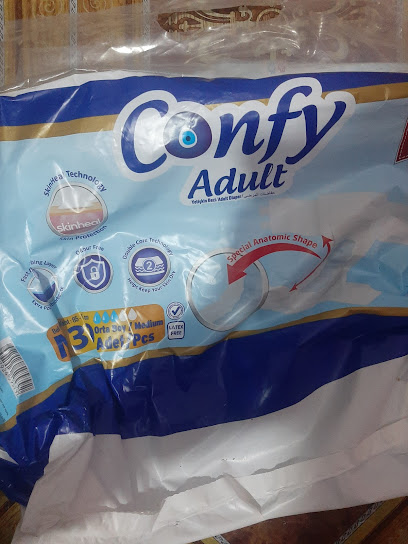
حي السلام
Experience the vibrant nightlife at حي السلام, a premier bar in Amarah offering local beverages and entertainment in the heart of Maysan Governorate.

مقهى السمار
Discover the charm of مقهى السمار in Amarah, where local culture meets a cozy ambiance perfect for relaxation and socializing over hookah and coffee.
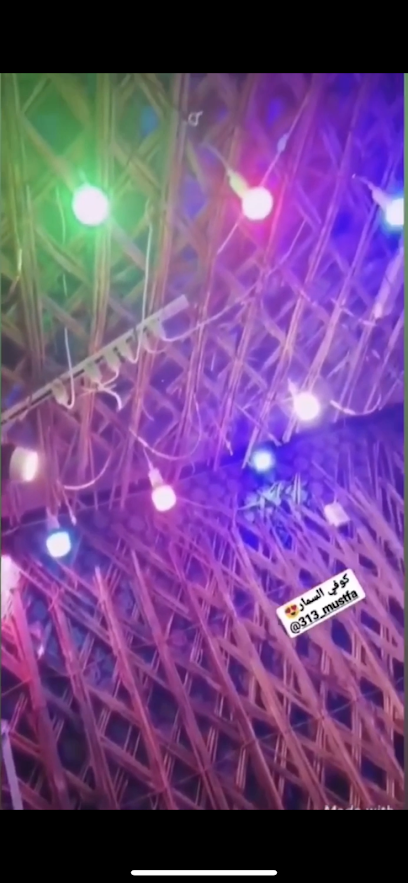
Al-Haj Juice
Experience the vibrant flavors of freshly squeezed juices at Al-Haj Juice in Amarah, Maysan Governorate, a must-visit for refreshing local delights.
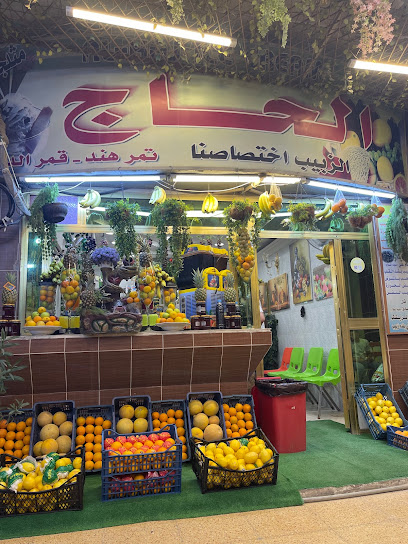
البديري للأراكيل
Explore Al-Bidiri Hookah Bar in Amarah for an authentic taste of local culture and a relaxing atmosphere filled with flavorful experiences.
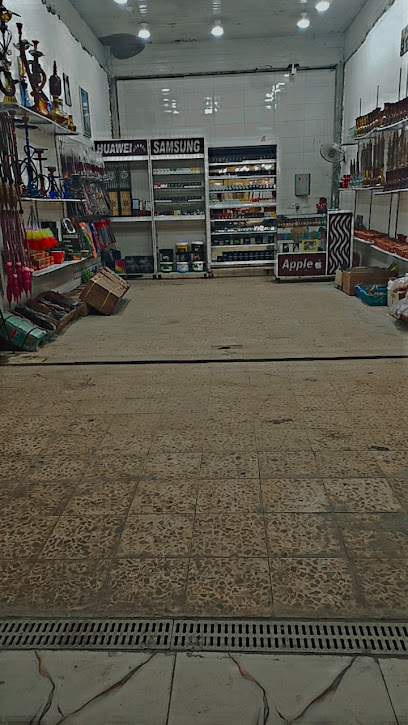
Amarah Shisha
Experience the unique charm of Amarah Shisha, where local coffee culture meets a cozy atmosphere in Maysan's heart.
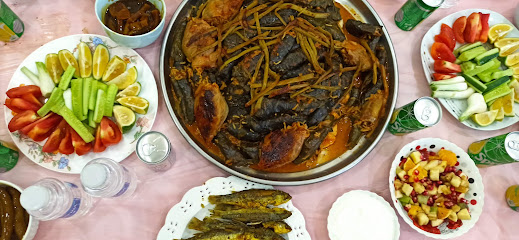
بـيـت ابــو احـمـد
Discover the heart of Iraqi hospitality at بيت ابو احمد, a lively bar in Amarah offering local flavors and a vibrant atmosphere for all visitors.

لكماجو
Experience the vibrant nightlife at لكماجو, a lively bar in Amarah offering a diverse drink selection and a welcoming atmosphere.

بيت فاضل ابو عباس
Experience the vibrant local culture at بيت فاضل ابو عباس, a charming bar in Amarah offering unique drinks and a welcoming atmosphere.

Local Phrases
-
- Helloسڵاو
[Slaaw] - Goodbyeخداحافظ
[Khuda hafiz] - Yesبەڵێ
[Belle] - Noنەخێر
[Nekher] - Please/You're welcomeتکایە/خواستە
[Takaye/Khwaste] - Thank youسوپاس
[Spas] - Excuse me/Sorryببورە/ببورە
[Bbore/Bbore] - How are you?چۆنیەتی؟
[Choniati?] - Fine. And you?باشە. تۆ چۆنی؟
[Bashe. To choni?] - Do you speak English?زمانی ئینگلیزی بەکار دەهێنیت؟
[Zmani Englizi bekar dehenit?] - I don't understandنەفەهمم
[Nefehemm]
- Helloسڵاو
-
- I'd like to see the menu, pleaseدەتەوێ بەرەوپەڕی ببینم، تکایە
[Detaewa berewpere bibinam, takaye] - I don't eat meatمن دەژمان ناخۆشم
[Min dezhman nakhoesham] - Cheers!بەخوشی!
[Bekhoshi!] - I would like to pay, pleaseدەتەوێ پارە بدەم، تکایە
[Detaewa pare bdem, takaye]
- I'd like to see the menu, pleaseدەتەوێ بەرەوپەڕی ببینم، تکایە
-
- Help!یارمەتی!
[Yarmeti!] - Go away!دەرەوە بەرەوە!
[Derewa berewa!] - Call the Police!پۆلیس پەخش بکە!
[Polis pekhsh bke!] - Call a doctor!دۆکتۆر پەخش بکە!
[Doktor pekhsh bke!] - I'm lostمن لە ڕێگایەم دەگەڕێم
[Min le reygayem degarem] - I'm illمن بیمارم
[Min bimarem]
- Help!یارمەتی!
-
- I'd like to buy...دەتەوێ خرید بکەم...
[Detaewa khreed bikem...] - I'm just lookingمن تەنها ناردنی دەکاتم
[Min tenha nardani dekatam] - How much is it?قەیمەتی ئەوە چییە؟
[Qeemati awe chiye?] - That's too expensiveئەوە زۆری گرانە
[Awe zori grane] - Can you lower the price?دەتوانی قەیمەت بەخەرەوە بکەیت؟
[Detwani qeemate bekharewe bkeet?]
- I'd like to buy...دەتەوێ خرید بکەم...
-
- What time is it?کاتێک چندە؟
[Katek chende?] - It's one o'clockکاتێکەوە یەکەیە
[Katekewe yekaye] - Half past (10)نیمەی یازده
[Nimeyi yazdeh] - Morningصبح
[Sobh] - Afternoonدوپەڕەم
[Dopreme] - Eveningئێوارە
[Eware] - Yesterdayدوێنێ
[Doyene] - Todayئەمڕۆ
[Amro] - Tomorrowسەرەوە
[Serewe] - 1یەک
[Yek] - 2دوو
[Dow] - 3سێ
[Se] - 4چوار
[Chwar] - 5پێنج
[Painj] - 6شەش
[Shesh] - 7حەوت
[Hewt] - 8هەشت
[Hasht] - 9نۆ
[No] - 10دە
[Da]
- What time is it?کاتێک چندە؟
-
- Where's a/the...?لەکووی یەکەوە؟
[Lekoy yekewe?] - What's the address?ناونیشان چییە؟
[Nawneeshan chiye?] - Can you show me (on the map)?دەتوانی پیشانم بدەیت؟
[Detwani peshanam bdeet?] - When's the next (bus)?کاتێکی داهاتووی بەردەم؟
[Kateki dahatowi berdem?] - A ticket (to ....)بلیت (بۆ ....)
[Bilit (bo ....)]
- Where's a/the...?لەکووی یەکەوە؟
History of Amara
-
Amara, also known as Al-Amarah, is a city in southeastern Iraq that lies on the banks of the Tigris River. It was founded in the late 19th century by the Ottoman Empire as a garrison town. Its strategic location made it an important center for trade and military operations.
-
During the Ottoman period, Amara served as a key administrative and commercial center. The city's architecture and urban layout were influenced by Ottoman styles, and several administrative buildings and markets from this era still stand today, offering a glimpse into its past.
-
In the aftermath of World War I, Amara came under British control as part of the larger Mesopotamian Campaign. The city played a significant role during the British Mandate of Mesopotamia, serving as a hub for British administrative and military activities. Several colonial buildings from this period can still be found in the city.
-
During the Hashemite Kingdom of Iraq (1921-1958), Amara underwent significant modernization efforts. Infrastructure projects, including the development of roads, schools, and hospitals, were initiated to improve the quality of life for its residents. The city also became a focal point for agricultural development due to its fertile lands.
-
Amara's proximity to the Iran-Iraq border made it a critical location during the Iran-Iraq War (1980-1988). The city was heavily impacted by the conflict, with many of its residents displaced and infrastructure damaged. Today, memorials and remnants of the war serve as somber reminders of this turbulent period.
-
Following the 2003 invasion of Iraq, Amara faced significant challenges, including security issues and economic instability. However, the city has been undergoing reconstruction and development efforts aimed at revitalizing its economy and infrastructure. Various NGOs and international organizations have been involved in these efforts, contributing to the city's gradual recovery.
-
Amara is known for its rich cultural heritage and vibrant local traditions. The city is famous for its traditional crafts, including weaving and pottery. Festivals and cultural events celebrating local folklore, music, and dance are held regularly, reflecting the city's diverse cultural identity.
Amara Essentials
-
Amara is located in the Maysan Governorate in southeastern Iraq. The nearest major airport is Basra International Airport, approximately 200 kilometers away. From Basra, you can take a taxi or a private car to Amara, with the journey typically taking around 3 to 4 hours. Alternatively, there are bus services that operate between Basra and Amara, providing a more budget-friendly option.
-
Within Amara, transportation options include taxis and minibuses. Taxis are widely available and can be hailed on the street or booked through hotel services. Minibuses are a common mode of transport for locals and are an affordable way to get around the city. For traveling longer distances or exploring the surrounding areas, hiring a private car is recommended.
-
The official currency in Iraq is the Iraqi Dinar (IQD). While credit cards are accepted in some hotels and larger establishments, it is advisable to carry cash, particularly when visiting smaller shops or markets. ATMs are available in Amara, but it is a good idea to withdraw sufficient cash in larger cities like Basra to ensure you have enough funds.
-
Amara is generally safe for tourists, but it is important to take standard precautions. Avoid walking alone at night in unfamiliar areas and keep an eye on your belongings in crowded places. Some areas in the city may have higher crime rates, so it is best to stay informed about local conditions and avoid venturing into those neighborhoods without local guidance.
-
In case of emergency, dial 115 for police assistance and 122 for medical emergencies. Amara has local police stations and medical facilities available. It is recommended to have travel insurance that covers medical emergencies. For minor health issues, pharmacies are available throughout the city where you can purchase over-the-counter medications.
-
Fashion: Do dress modestly, especially when visiting religious sites. Avoid wearing revealing clothing. Religion: Do respect local customs and religious practices. Always remove your shoes and cover your head when entering mosques. Public Transport: Do be respectful and give up your seat to elderly passengers. Don't eat or drink on public transport. Greetings: Do greet people with a handshake. A slight bow of the head is also a sign of respect. Eating & Drinking: Do try local delicacies and accept food offerings graciously. Don't refuse hospitality, as it is considered impolite.
-
To experience Amara like a local, visit the local markets where you can buy fresh produce and traditional Iraqi goods. Engage with locals, as they are often friendly and willing to share stories about the city's history and culture. Don't miss visiting the traditional mudhif houses, unique to the Marsh Arabs of the region. For a unique experience, take a boat ride through the marshes, offering a glimpse into the traditional way of life in this part of Iraq.
Nearby Cities to Amara
-
Things To Do in Basra
-
Things To Do in Najaf
-
Things To Do in Jahra
-
Things To Do in Kuwait City
-
Things To Do in Hawalli
-
Things To Do in Salmiya
-
Things To Do in Farwaniya
-
Things To Do in Sabah Al-Salem
-
Things To Do in Karbala
-
Things To Do in Baghdad
-
Things To Do in Mangaf
-
Things To Do in Ahmadi
-
Things To Do in Fahaheel
-
Things To Do in Sulaymaniyah
-
Things To Do in Kirkuk




